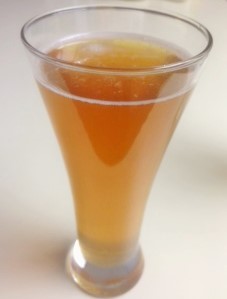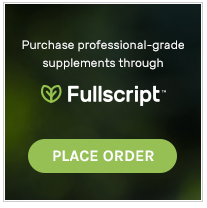Kombucha: What Is It and What's In It?
|
Kombucha is a cultured drink that is full of bacteria and yeasts. It is also known as tea fungus, Haipao, mushroom tea and many others. It is enjoyed in many parts of the world, from industrialized societies to tribal peoples in developing countries. |
There is much misinformation about kombucha on the internet! I reviewed at least 27 scientific studies and compiled the facts in my articles on this subject. I did not use any other source except those studies unless noted.
The beneficial bacteria and yeasts live together in a gel-like mass called a SCOBY, a symbiotic culture of bacteria and yeasts, which floats at/near the top of the fluid. This SCOBY is also called a “pellicle”. The SCOBY grows over time to cover the surface of the liquid and it adds new layers. It is made mostly of cellulose, a byproduct of microbe growth and microbes. Yeasts and bacteria are also found in the fermented tea.
Kombucha is commonly cultivated in black tea or a medley of teas sweetened with sucrose sugar to produce a slightly acidic (pH 2.5-3) and effervescent beverage. Thus, in many studies it is abbreviated as KT.
The typical kombucha recipe I use is 1 cup of sugar dissolved in one gallon of hot, filtered water to which 1 tablespoon or so of whole tea leaves is added and allowed to steep. After the solution has steeped, has been strained (if necessary) and cooled to room temperature, it is added to a non-metal, non-plastic container with the SCOBY and the top is covered with a cloth and secured with a band to keep the bugs out.
The sugar is used as food by the microbes and the amount of sugar in the
final product depends on the length of fermentation time. Usually, the
sugar content decreases significantly after 3 days in black tea and at a
more constant pace in green tea. However, there is always some sugar
(as sucrose, glucose and/or fructose) left in drinkable brew.
In
addition to some amount of sugar, KT (depending on the microbes in the
SCOBY and the length of fermentation time) also can contain: various
acids such as acetic (as in vinegar), citric, gluconic and lactic;
vitamin C; small amounts of B vitamins (B1, B2, B6, B12); carbon
dioxide; small amounts of alcohol; amino acids; methylxanthine alkaloids
(such as caffeine, theophylline and theobromine); proteins; and various
antimicrobial substances produced by the microbes.
Where Can You Get Kombucha and Save Money?
As I describe on the KT benefits page, you can find KT in bottles (usually 16 ounces) in the refrigerated section of most health food stores and potentially in some supermarkets. But when you buy it from those places, it can be a bit expensive.
If you want to save lots of money and have more control over the ingredients, then I suggest you brew KT at home.
The continuous brewing system (CBS) allows me to indulge in KT whenever I please and all I have to do is replace the amount of KT which I drink from the CBS with sweetened tea from a container I keep in my refrigerator! Super easy and SUPER CONVENIENT!
If you aren't ready to try a continuous brewing system, Kombucha Kamp also sells just the SCOBY, just the organic tea blend, bottled KT concentrate or other supplies, too. They also have milk and water kefir grains and other items to make home brewing of fermented drinks as easy as possible. They also sell soap made with KT (who knew?!?)
What is the Caffeine Content of KT?
The amount of caffeine in KT is small. Normally a cup of tea is brewed with 1 teaspoon of whole tea leaves per 1 cup of water. KT is made with 3 teaspoons of whole tea leaves per 16 cups of water.
From what I have found, black tea caffeine levels can range from about 25 to 90 mg/cup for a 5-minute steep time. So that means that KT has about 5 to 17 mg/cup of caffeine when steeped.
Health Benefits of KT
The health benefits and my favorite sources of KT are discussed on this page.
Return to cultured foods and drinks page.
I research studies and share my clinical experience to write this free site to help you find solutions to your problems. As part of that, I recommend products and services that I genuinely believe will be of help to you. If you click on a link to a product/service, I may receive a small commission to support my efforts if you buy something. The item does not cost you more.
Thanks for visiting this site! If you've enjoyed reading this page or have found the information to be useful to you, please "like", tweet about it, or share it so others can benefit, too. You can leave comments below via Facebook or Disqus.
Comment with Disqus (including as a guest), Twitter or Google accounts:
If you are one of my many readers without a Facebook account, you can still comment.
Disclaimer: Please note: By law, I cannot provide any personalized recommendations for your specific health concern on this site. The information contained in this site is educational in nature and is not intended as diagnosis, treatment, prescription or cure for any physical or mental disease, nor is it intended as a substitute for regular medical care. Consult with your doctor regarding any health or medical concerns you may have.
Subscribe to my occasional newsletter and receive a free copy of "How to Use Probiotics to Lose Weight and Be Healthier".

To comply with the EU's GDPR data privacy regulation, please subscribe here:
Looking for some quality professional supplements, including probiotics? Check out my online dispensary, as I will be doing reviews of some of these products in the future. Click on the Fullscript picture. (Note: If you were a former Wellevate customer, please switch to Fullscript for a better customer experience. Thanks!)
Some competitors of SBI (Solo Build It) are posting fake negative reviews of SBI. If you are considering creating your own website business, or if you have a brick-and-mortar business but want an online presence, I highly recommend SBI!







Comment with Facebook!
I'd love to hear your opinion about what you just read. Leave me a comment in the box below! Other commenting options follow the Facebook comments.